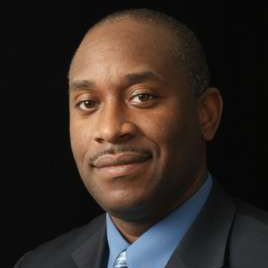Hubbard Radio Washington DC, LLC. All rights reserved. This website is not intended for users located within the European Economic Area.
IC calls on academia, industry to help with new technologies for pandemic
The intelligence community is looking for what it calls tools and technologies for rapid capabilities against the pandemic.
Best listening experience is on Chrome, Firefox or Safari. Subscribe to Federal Drive’s daily audio interviews on Apple Podcasts or PodcastOne.
The intelligence community is looking for what it calls tools and technologies for rapid capabilities against the pandemic. And it’s calling on industry and academia for proposals. Promising ones will get seedling awards to develop them further. Federal Drive with Tom Temin turned to the deputy director of research at the Intelligence Advanced Research Projects Activity, Dr. Catherine Cotell, for details.
Interview transcript:
Tom Temin: Dr. Cotell. Good to have you on.
Dr. Catherine Cotell: Good morning Tom, thank you for inviting me, and thank you for your interest in IARPA’s research.
Tom Temin: Now, these are called seedling awards, and I think of seeds as coming before seedlings. So it sounds like you’re looking for ideas that may already have germinated a little bit somewhere.
Dr. Catherine Cotell: That’s exactly right. But they’re not full fledged programs, which is what IARPA typically invests in. We use the word seedling as an opportunity to grow an idea into perhaps a later full fledged, longer term program. In fact, one of my former colleagues used to use the analogy that with a ceiling we try to move disbelief to doubt, so seedlings are very high risk. And once we get to the doubt phase, we may make further investments later.
Tom Temin: Got it. And when I think of awarding grants to develop responses to coronavirus and the pandemic, we’ve talked to the NIH has programs doing this a couple of their institutes. What is going on in the intelligence community that would cause it to want to enter into this whole battle. What’s the angle from the IC?
Dr. Catherine Cotell: Well, let me first start by describing IARPA and the kind of work that we do and then I’ll give you a good example, I think of the kind of impact that IARPA can have. So IARPA is an organization that was set up in 2006 as an independent organization under the Office of the Director of National Intelligence, and like the ODNI. Our mission is to work across all of the agencies in the intelligence community. We invest in high risk high payoff R&D projects that are designed to deliver an overwhelming intelligence advantage to the United States in the future. The example that I’m talking about is one of our programs that is known as MAEGLIN. And the MAEGLIN program was designed to provide sensors that will be able to detect indicators of illicit activities such as manufacture of weapons of mass destruction, or narcotics. The performer of the research on the MAEGLIN program was developing a small portable gas sensor, and in some parallel work that he was doing, he was investigating that sensor as a breath analyzer for the detection of diseases such as asthma — knowing that acute respiratory distress syndrome is a life threatening complication of COVID-19. In April, we were very quickly able to pivot some of his research to add a clinical trial using that portable sensor to detect signs of ARDS. And just last week, we got some very preliminary results that do indicate there is a difference between healthy patients and COVID-19 patients visible in the output of the sensor, and in fact that the sensor can track the trajectory of that ARDS over time. So we may have a new diagnostic in the works.
Tom Temin: And that’s quite a bridge to make them from detecting, say illicit activity with respect to firearms or explosives over to what people are breathing. And let me ask this is this particular sensor, is it able to sense the problem of respiratory illness, perhaps before the person is aware of it or before they become a heavy breather?
Dr. Catherine Cotell: That’s the idea is to be able to use this small portable device that can be carried into a hospital room, for example, where somebody who has been diagnosed already may be staying and detect them, use the breath analyzer and detect signs of this complication earlier than would be noticeable with actual clinical symptoms.
Tom Temin: Now you’ve got an announcement though for any and all comers for possible grants under the seedlings program. So tell us about the larger program here.
Dr. Catherine Cotell: So we did recently publish a broad agency announcement. And broad agency announcements are the way by which I are both solicits research ideas. We’re very committed to the concept of full and open competition and both our solicitation and our selection of the projects that we fund and the BAA is the way that we let the public know about the topics that are of interest to us. I will say that we are not like NSF or NIH in the sense that we don’t typically do this work under grants but rather under research procurement contracts.
Tom Temin: Got it? And so you are looking I said early on industry and academia, was I accurate in saying you’re looking for any and all comers that might have ideas to rapid response against the pandemic?
Dr. Catherine Cotell: Absolutely, and that’s why we use the broad agency announcement mechanisms. Our research performers range from academics, universities, small businesses, large businesses, nonprofit research organizations. And we have international partners on many of our programs.
Tom Temin: And what’s the mechanism by which you make sure that you’re not say duplicating work that could be done at other reach outs, such as from the NIH?
Dr. Catherine Cotell: Well, as I mentioned, we are part of the intelligence community. And so we’re in very regular contact with all the other agencies in the intelligence community. We’re also part of the larger R&D community with other government agencies. So we do communicate with them regularly. And in fact, this particular VA specifically asks the proposers to identify whether they have submitted their proposals to another agency. And that will allow us to come in contact with those agencies determine if we have aligned missions and objectives. And also make sure that we’re not funding the same idea twice.
Tom Temin: Got it. Because I know say there are are federal statistical agencies, many of them, and they have kind of an overarching agreement, maybe not even agreement but an understanding of their own existence and they have kind of a council. Is that also true in the research area of government?
Dr. Catherine Cotell: There are certainly both formal and informal collaborations and communication venues by which members of the intelligence community research and development community sub community interact with the larger community. And of course, being in the Washington DC area. That’s a very easy thing to do in person.
Tom Temin: Sure. And getting back to this particular broad agency announcement, what is the status of it, what are the deadlines and what are some of the timelines ahead that you’re looking at?
Dr. Catherine Cotell: Well, the broad agency announcement was published as of June 6, we started to accept proposals. We’re going to do the proposal reviews and rounds. And so the first round will close on July 7. And so at that point, we will have a panel of reviewers who are subject matter experts at IARPA in the particular topic areas, review the proposals and determine which ones should be selected for award. The BAA itself is open until May 20 of 2021. My expectation is, however, that we may not have funding available to support projects that may be submitted at the later end of that scope.
Tom Temin: And was the funding for this part of the CARES Act or part of the Congressional pandemic response? Or did you have those funds already?
Dr. Catherine Cotell: I hope it does historically invest in seedling type programs. And so this funding came from our signaling allocations.
Tom Temin: And do you have any anticipation of the types of projects that you might be seeing coming in yet?
Dr. Catherine Cotell: Well, the BAA does actually specify the areas that are of greatest interest to us. And these include detection and sensing. The MAEGLIN project is a good example of a dual use of sensor that we had invested in for non medical reasons initially. We’re also interested in ideas in the area of supply chain management. Anyone who’s been to a supermarket in the last couple of months is acutely aware of issues of that kind that have broad impact. We’re interested in geospatial temporal monitoring and mapping with privacy protection. We’re also interested in the reliability of information and collaboration tools that will allow people to share information and of course, predictive analytics, modeling and simulation.
Tom Temin: And we described an issue where there was convergence between a non health related issue and health related one. I wonder if what you get in under this announcement might bridge the other way into other intelligence interests?
Dr. Catherine Cotell: Oh, we would hope so. As I say the whole point of a seedling is in fact to try to grow an idea into one of our longer term larger scope programs. So yes, in fact, if we get an idea that proves itself out, we will certainly want to pursue it in the form of a longer program.
Tom Temin: Dr. Catherine Cotell is Deputy Director of Research at the Intelligence Advanced Research Projects activity. Thanks so much for joining me.
Dr. Catherine Cotell: Thank you, Tom. It’s been a pleasure.
Copyright © 2024 Federal News Network. All rights reserved. This website is not intended for users located within the European Economic Area.
Tom Temin
Tom Temin is host of the Federal Drive and has been providing insight on federal technology and management issues for more than 30 years.
Follow @tteminWFED
Related Stories
Related Topics
Related Stories
-
Did the Intelligence Community see this pandemic coming? Agency Oversight




